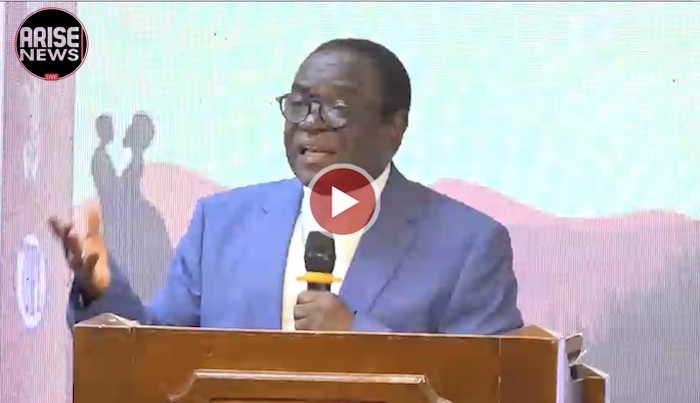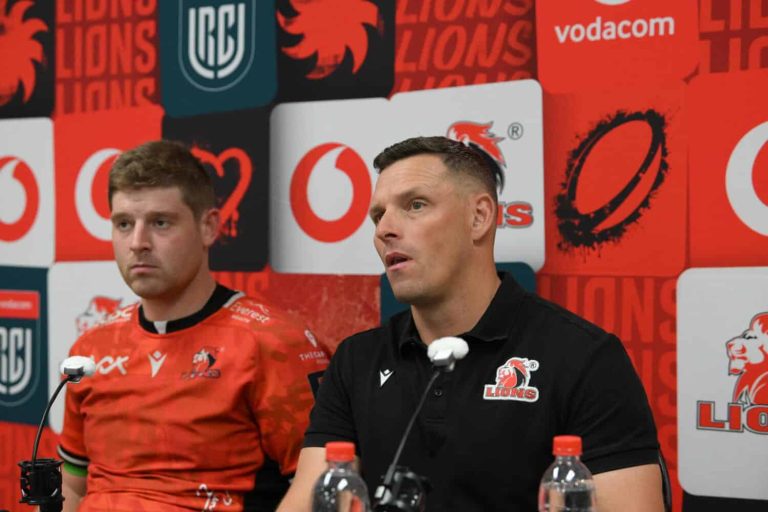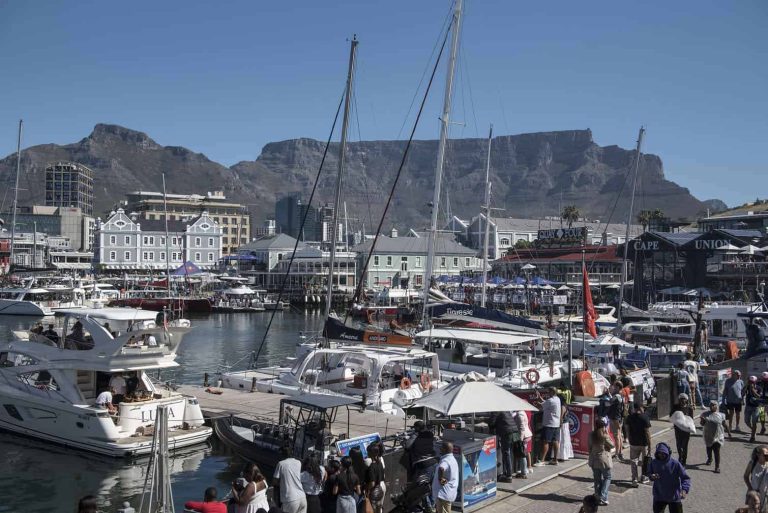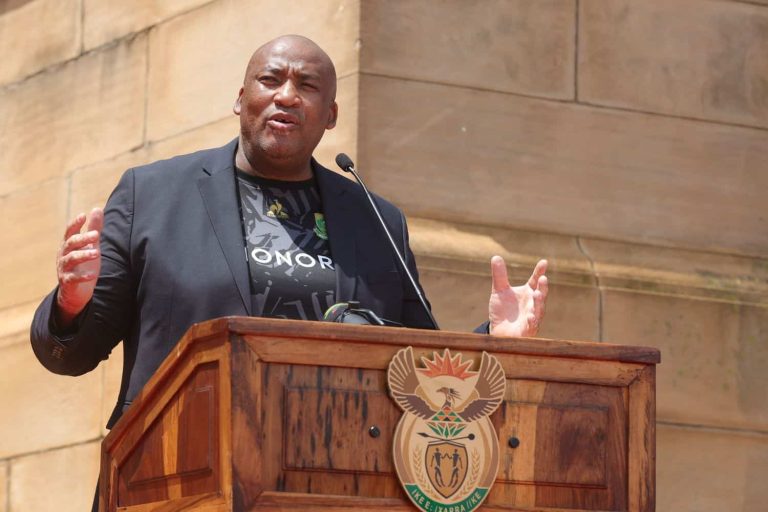
The Catholic Bishop of Sokoto Diocese, Most Rev. Matthew Hassan Kukah, has said that Nigeria must “reload” itself to rediscover its moral direction and rebuild its national identity, lamenting the absence of shared myths, monuments, and founding ideals that bind nations together.
Speaking Friday at a book launch held to commemorate the 60th birthday of journalist and ARISE News anchor, Dr. Reuben Abati, Bishop Kukah said Nigeria had become “a nation of disrupted dreams,” where the moral and intellectual standards that once defined public life have waned with time.
In a statement, he said:
“People who work with you, gel. And I think that’s why, as I said, among many other things, I thought I should be here for this event. Now, Nigeria is between what I call A.T. and B.T., or B.T. and A.T. You know what that means? That is, right now, everything that happens in Nigeria has to be before Trump or after Trump.”
Introducing his keynote titled Nigeria, Time to Reload, Bishop Kukah said despite the accomplishments of Dr. Abati and other journalists, there was a visible decline in standards across the media landscape.
He noted: “When I checked the records, I discovered that actually people like him and a lot of other people in the media, somehow—and please don’t get me wrong—the standards are falling, not due to lack of intellect, but due to age.”
He recalled that, “Dr. Abati’s employer today, the Debonair Duke, started a newspaper at the age of 24. Chris Okoli started one of the most memorable magazines at 26, Peter Enahoro edited the Daily Times as a young man, and they all achieved greatness early. The challenge, therefore, is what happened on the road to heaven? How have we ended up where we are now in Nigeria?”
Reflecting on Nigeria’s identity crisis, Bishop Kukah said, “Many of you are familiar with the poem by Robert Frost, The Road Not Taken. It is evident that because we are taking so long to get to our destination, and because the goalposts are always constantly shifting, we must ask ourselves what has happened with map reading. Why have we ended up with a nation of such disrupted dreams?”
He compared Nigeria’s lack of monuments to other countries that have built their national identity on history and symbolism.
“I went to Alexandria in Egypt and was shocked by what I saw. Everything there is tied to tourism—they don’t have oil, yet everything works. I asked myself, if somebody came to Nigeria today, where would I take them? In other countries, tourists can visit the White House or the Élysée Palace, but in Nigeria, you cannot even see the Presidential Villa unless you are flying over it—and you could be shot down,” he said.
According to him, the absence of such monuments reflects “a deeper absence of national myths that help in nation building.”
“The Boers in South Africa still commemorate the Battle of Blood River, the Americans celebrate Thanksgiving, and Europeans mark Normandy Day. What do we celebrate in Nigeria? Every year, they tell us Independence Day will be low-key or no-key at all. Something happened—or didn’t happen—and that is why we must reload.”
He continued: “We need to reload because either we fired our shot wrongly, or the target moved, or something has gone wrong. How do we explain the over 60,000 abandoned projects across Nigeria? How do we explain the billions of dollars lost to illicit financial flows, as captured in Kofi Annan’s report?”
Bishop Kukah lamented that religion, instead of inspiring unity, had become a source of division and death in Nigeria.
“We are victims and hostages in the womb of ethnicity and religion—things that should inspire us. Religion has become a subject of death. So, where did we get it wrong? Even the things we did right, we failed to consolidate,” he said.
He criticised Nigeria’s lack of shared national heroes, adding:
“If you ask who are the prominent Nigerian statesmen whose names resonate across the country, the Yoruba have Awolowo, the Igbos have Zik, and the Northerners have Sardauna. We, who are children of a lesser God, have no idea who to look to. When Americans speak of their founding fathers—Benjamin Franklin, George Washington, Thomas Jefferson—they evoke them as sacred monuments to guide or rebuke their actions. We have none.”
He argued that every nation must draw from a moral and cultural foundation, citing examples from America and China.
“In America, the founding fathers were Puritans who built their nation on gospel principles, captured in John Winthrop’s sermon referring to America as ‘a city on a hill.’ From that, they derived ideals like ‘In God We Trust’ and ‘Manifest Destiny.’ The Chinese, drawing from Confucius, built their civilisation on moderation and virtue. But in Nigeria, we lack a moral equilibrium—we lack the institutional or cultural inspiration to build an identity,” Kukah said.
Referencing colonial history, the Bishop said Nigeria’s political crisis began at its foundation.
He noted that books such as The Harold Smith Story and A Fatherless People by Dele Ogun document how the British manipulated the political process and sidelined visionary leaders like Awolowo and Azikiwe because of their radical ideas.
“We are acting in a play we didn’t write, a play full of plots we are unprepared to deal with,” he said.
He recalled that during Nigeria’s formative years, even leaders like Nnamdi Azikiwe and Ahmadu Bello disagreed on whether the country should “forget or remember” its differences—an unresolved tension that still defines the nation today.
“As Sardauna said, let us remember our differences, not forget them. That distinction is what has brought us here. We are moving without motion,” Kukah said.
Turning to democracy, he cited recent findings from the Pew Foundation that showed rising global dissatisfaction with democratic governance, with only India recording majority satisfaction.
“Our dissatisfaction with democracy is not unique, but our response must be. Free and fair elections are necessary, but they are not sufficient for the institutionalisation of democracy,” he warned.
“Ordination is a ceremony, not the priesthood; a wedding is not a marriage—it is what comes after that matters. The same applies to elections. We have a flood of defections in Nigeria that cannot happen in Ghana, where the law mandates a by-election within 42 days in which the defector cannot participate. That is what we must build—a system, not sentiments.”
Bishop Kukah concluded by urging Nigeria to rethink its values, institutions, and moral compass.
He said: “We need to reload—to ask ourselves what is happening, what we are doing, and what we can do differently. Until we establish a moral foundation and a unifying national myth, Nigeria will continue to move without direction.”
Boluwatife Enome



